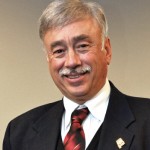Beware of the “Fraud of the Century”
Posted on May 2, 2013 by bob in Financial
The slow economic recovery and volatile stock markets are making ‘investing’ through the supposedly secretive portfolios of ‘prime banks’ seem more appealing. Promoters claim prime bank trading programs can yield huge returns with NO risk. In reality, ‘prime banks’ do not exist, nor do the instruments in which they claim to trade.
In a typical pitch, increasingly made over the Internet, investors are promised access to secret, high-yield investments made through trades among the world’s top, or ‘prime,’ banks. Prime bank promoters falsely claim their investments are guaranteed or secured by various types of collateral or insurance. So many prime bank scams succeed in stealing investors’ money, that the Commercial Crime Bureau of the International Chamber of Commerce calls them the “fraud of the century.”
State securities regulators find that many victims of prime bank scams fail to report their losses because they don’t want to appear foolish. Others simply can’t believe close friends, trusted business associates, or people they met at church ripped them off. Over the past decade, federal and state regulators have brought actions on behalf of thousands of people nationwide who have invested billions of dollars in prime bank scams. Very little is ever recovered and the criminals are usually long gone.
Prime bank scam artists come from all backgrounds. In Alabama, a real estate broker, a community college professor and a licensed stockbroker joined forces to scam more than $2,000,000. Investors, including some of the professor’s students, were promised 40 percent to 50 percent annual returns through “the systemic purchase and resale of prime bank instruments with major world banks.” In reality, investor funds were used to make mortgage payments, buy furniture, purchase expensive cars and pay for vacations to Europe.
One reason ‘prime bank’ scam artists are able to mislead people is because the instruments they claim to be using – standby letters of credit, bank debentures and bank-secured trading programs, to name a few – mimic legitimate financial instruments closely enough to deceive people outside the specialized world of international banking.
Before making any investment, the Alabama Securities Commission urges investors to ask the following questions:
• Are the seller and investment licensed and registered in Alabama? If not, they may be operating illegally.
• Has the seller provided written information that fully explains the investment? Jargon that sounds sophisticated, but makes no sense, is a red flag for fraud.
• Are claims made for the investment realistic? Pie-in-the-sky promises often signal investment fraud.
• Does the investment meet your personal investment goals? Whether you’re investing for long-term growth, investment income, or other reasons, an investment should match your own investment goals.
Contact ASC regarding securities broker-dealers, agents, investment advisors, investment advisor representatives, financial planners, the registration status of securities, to report suspected fraud or to obtain consumer information.
Joseph Borg is Director of the Alabama Securities Commission. Schedule a Wise & Safe Investing seminar in your community by calling ASC’s Education and Public Affairs Division, 334-353-4858, or visit www.asc.alabama.gov for free information and educational materials. This article is provided by a generous grant from the Investor Protection Trust, www.investorprotection.org.










